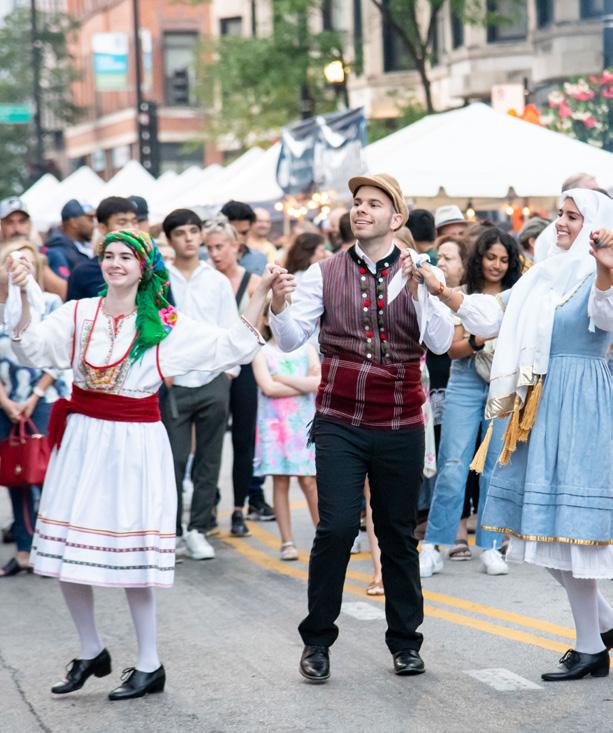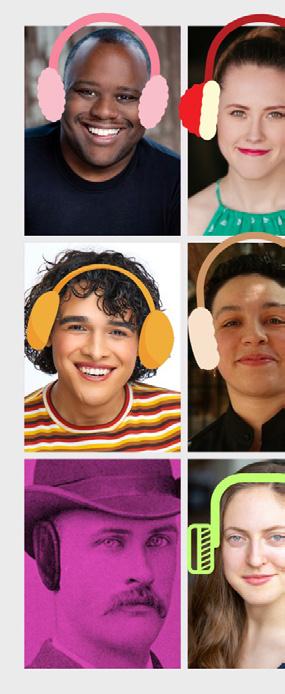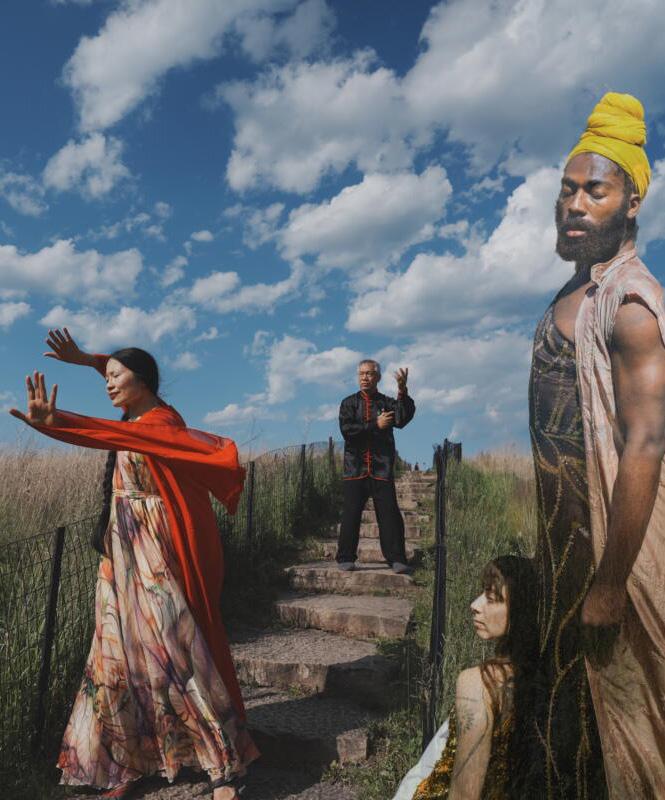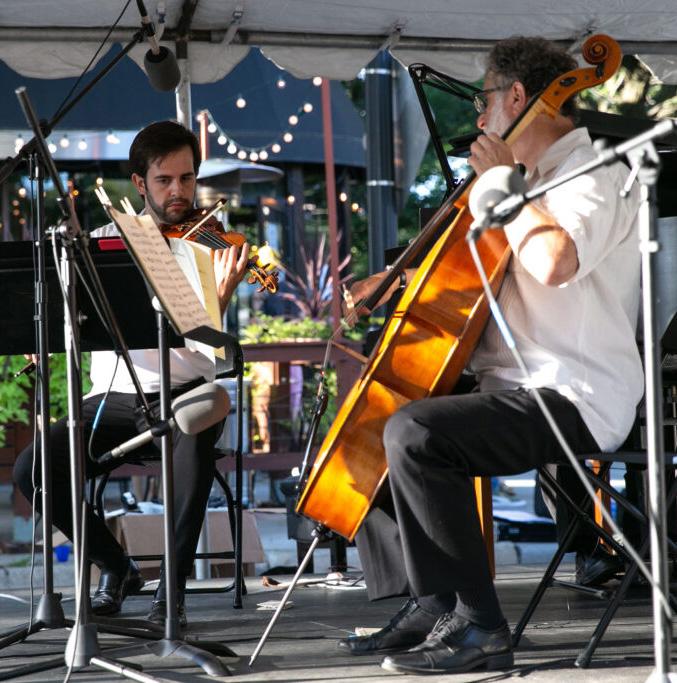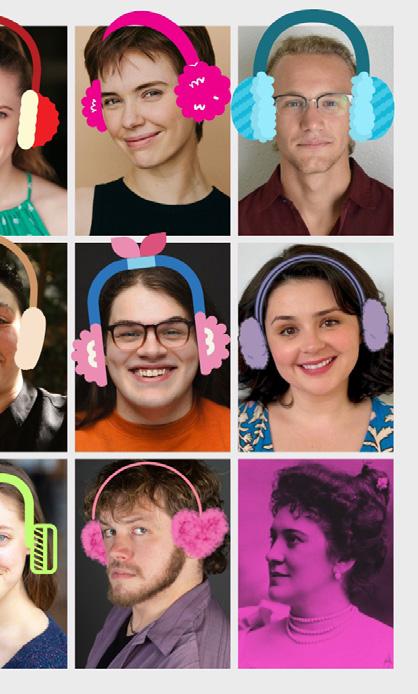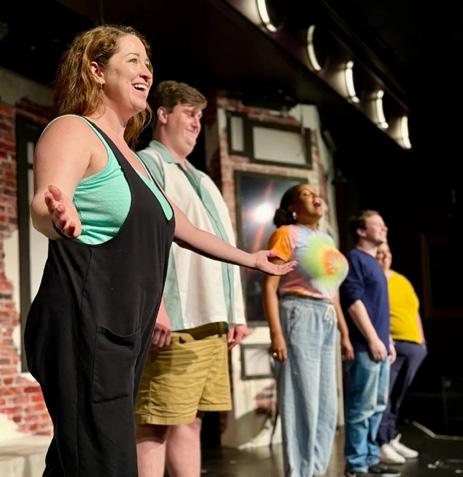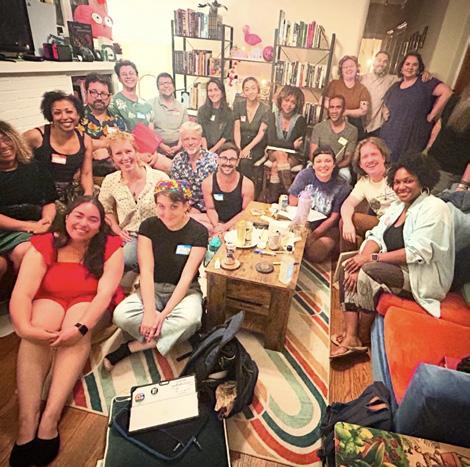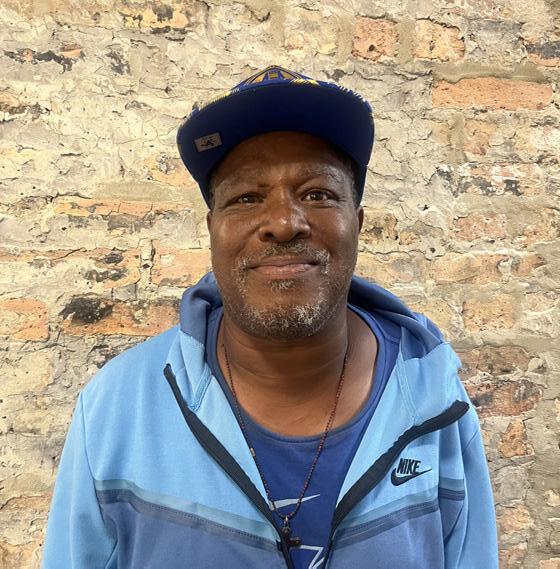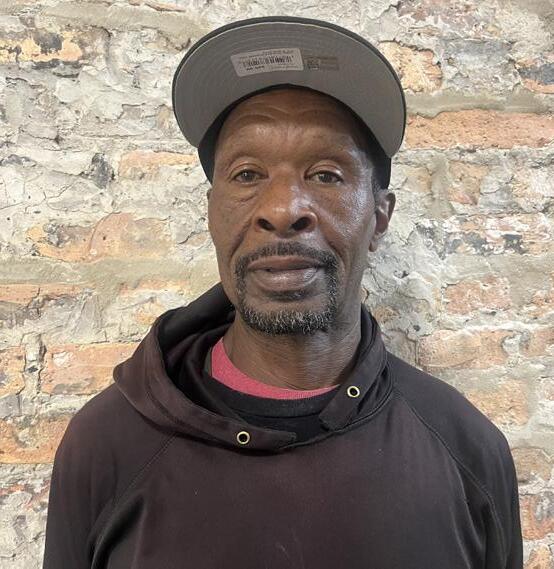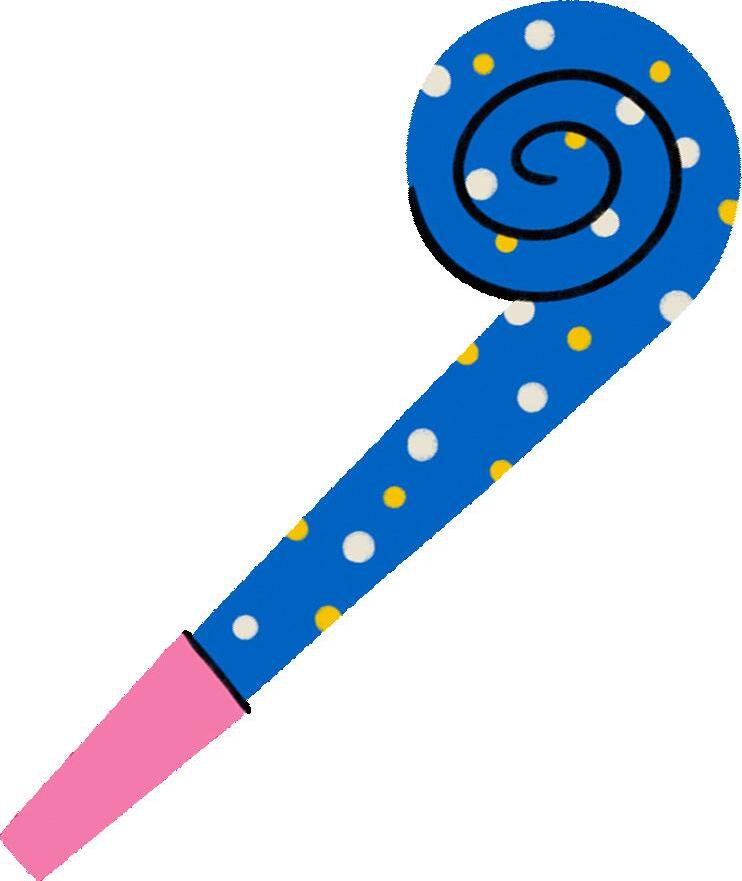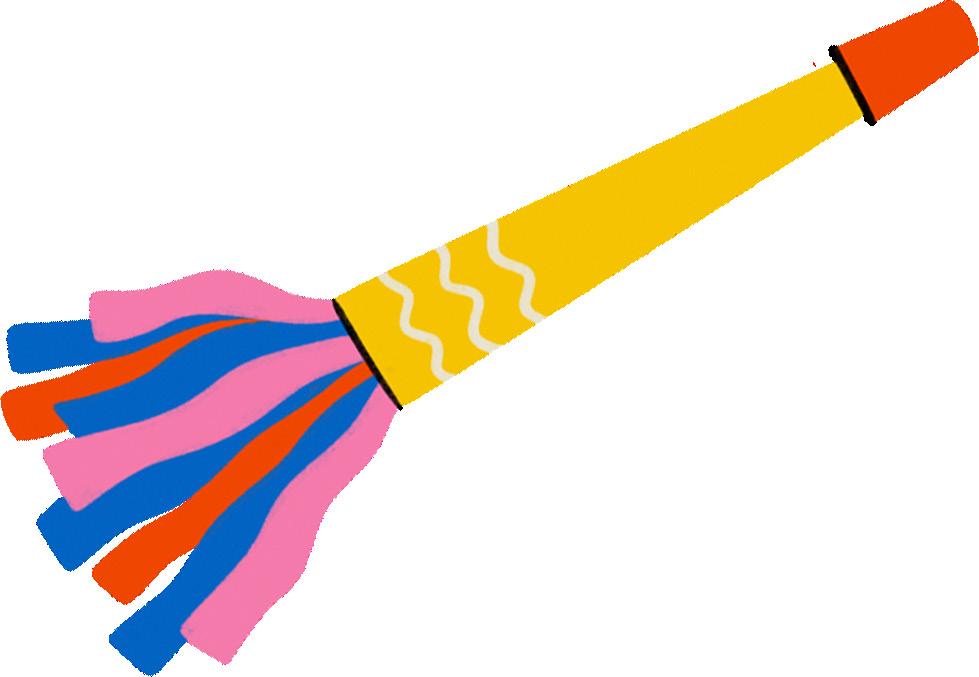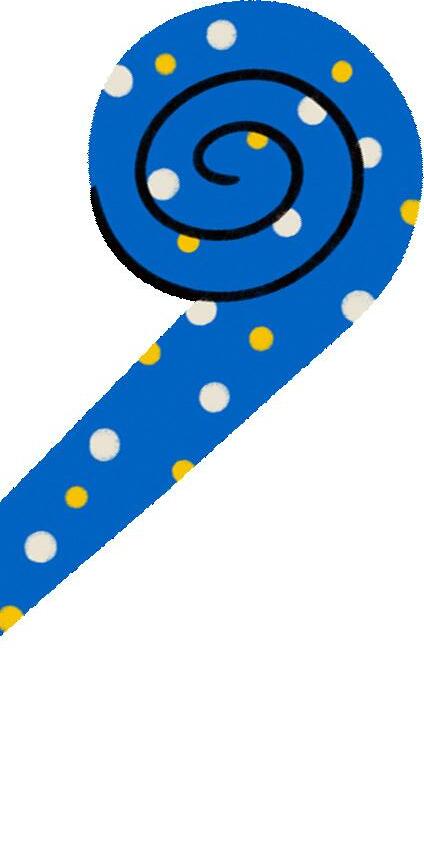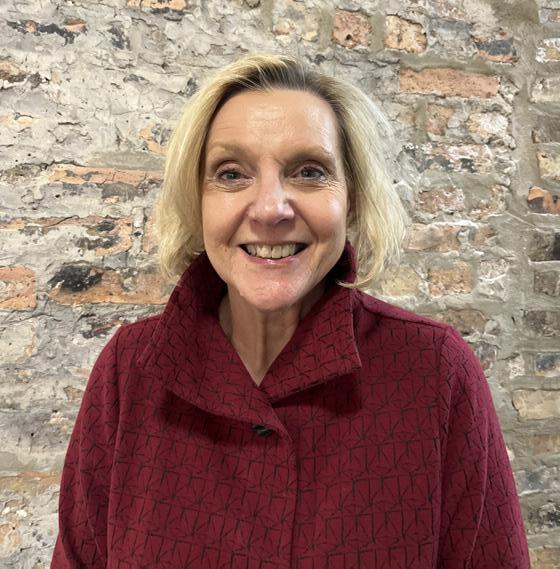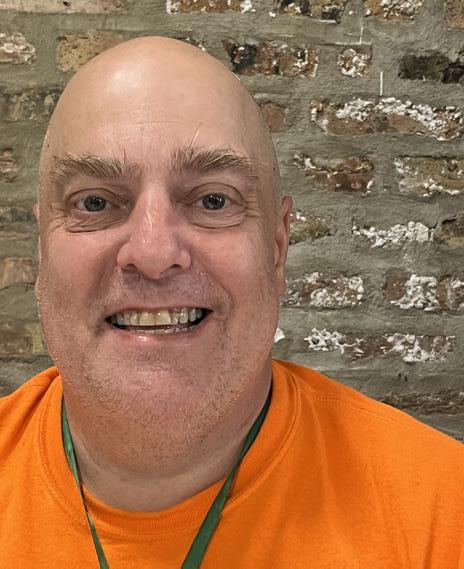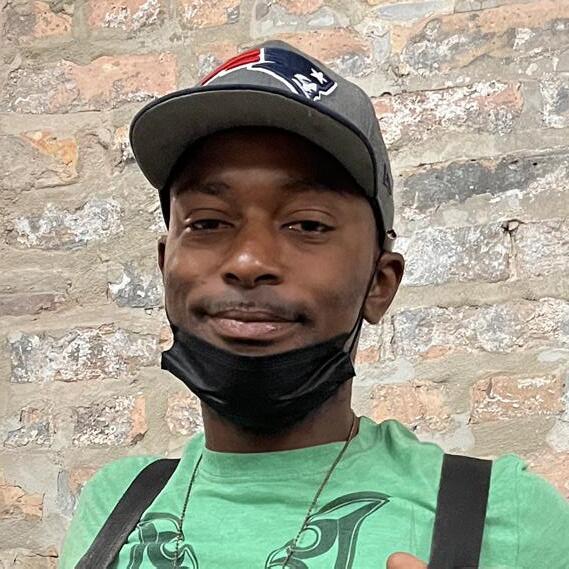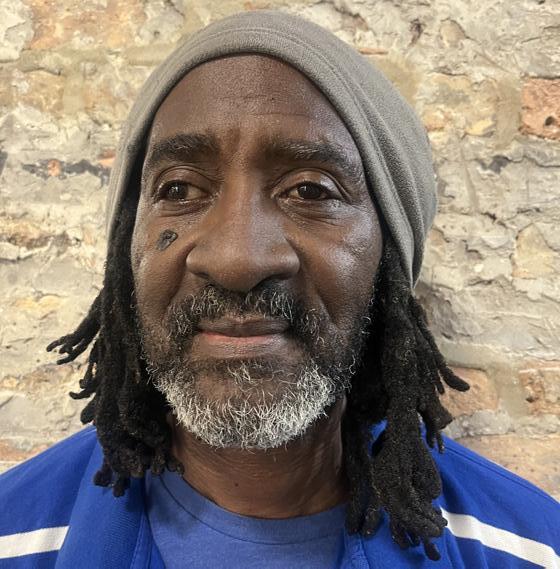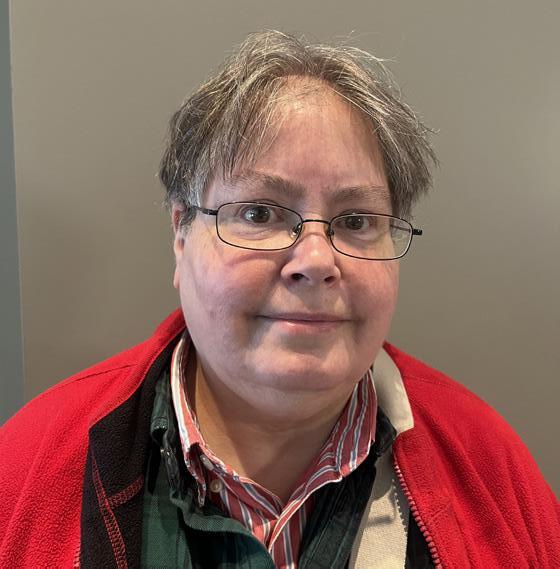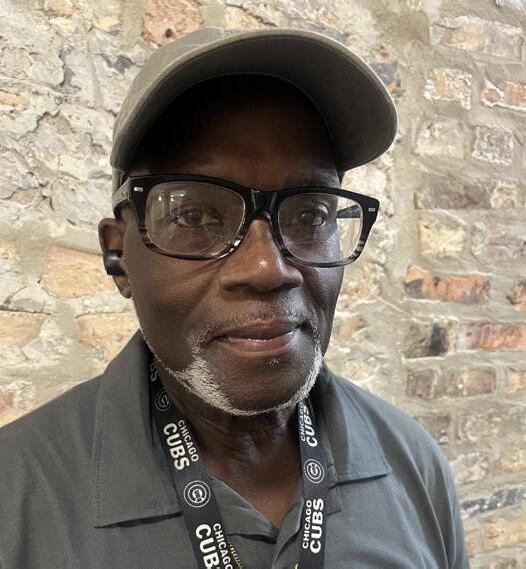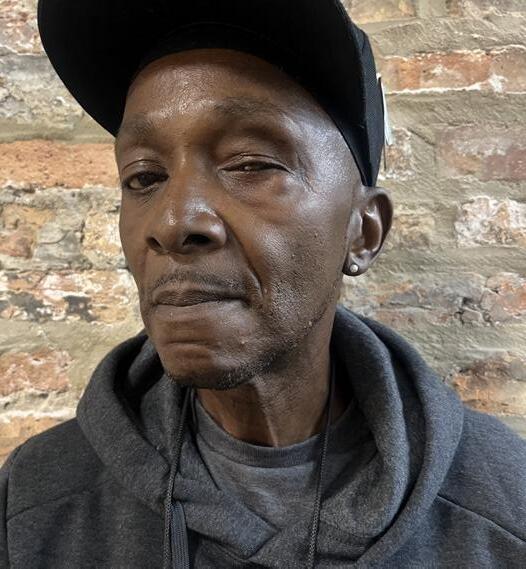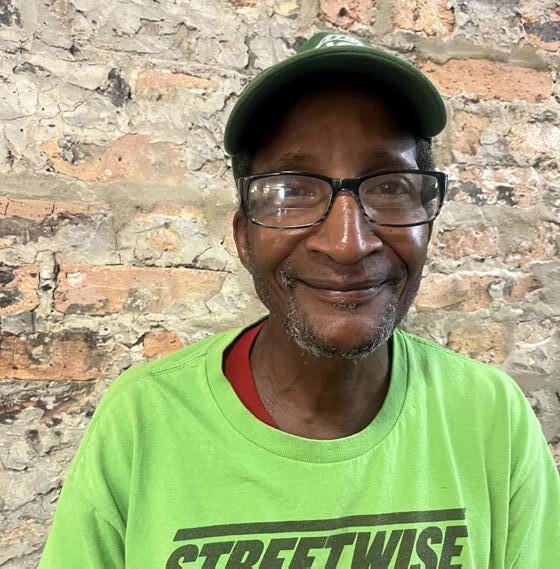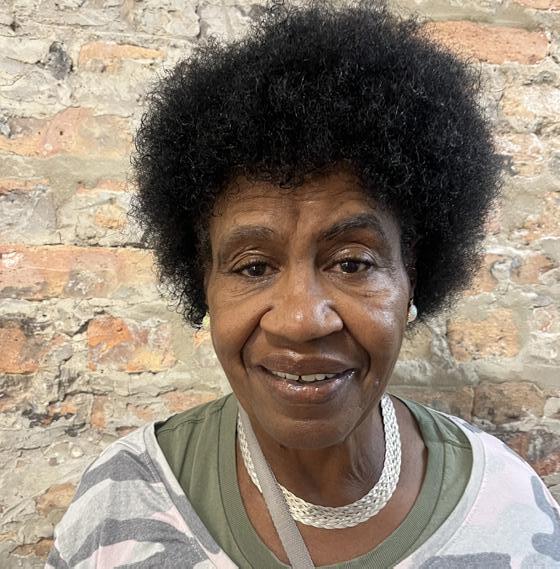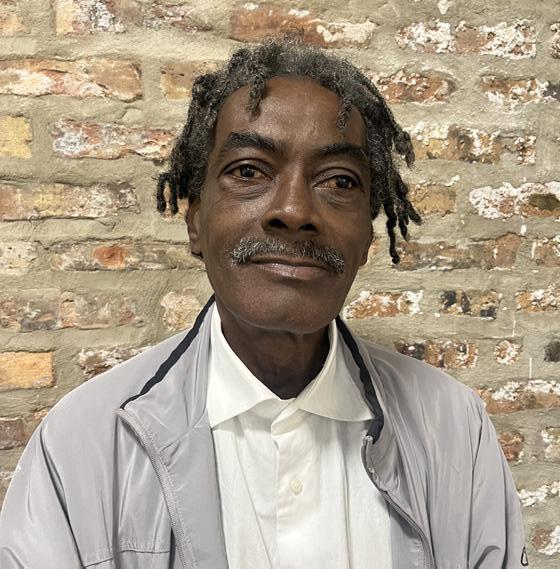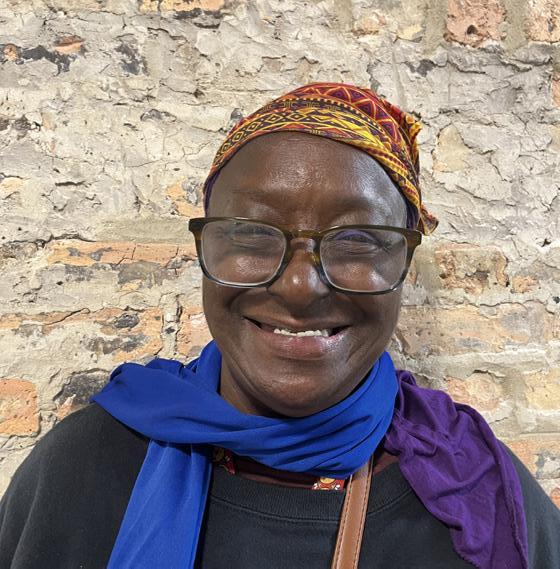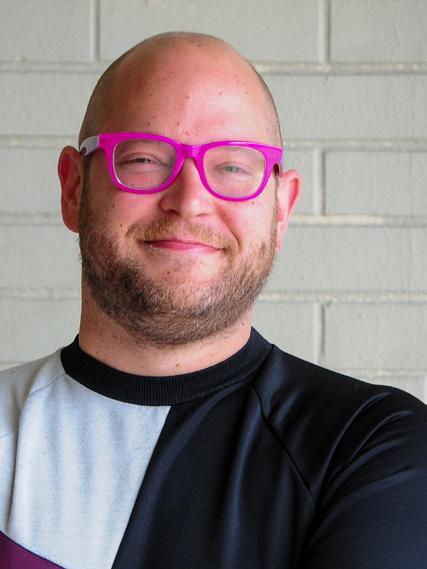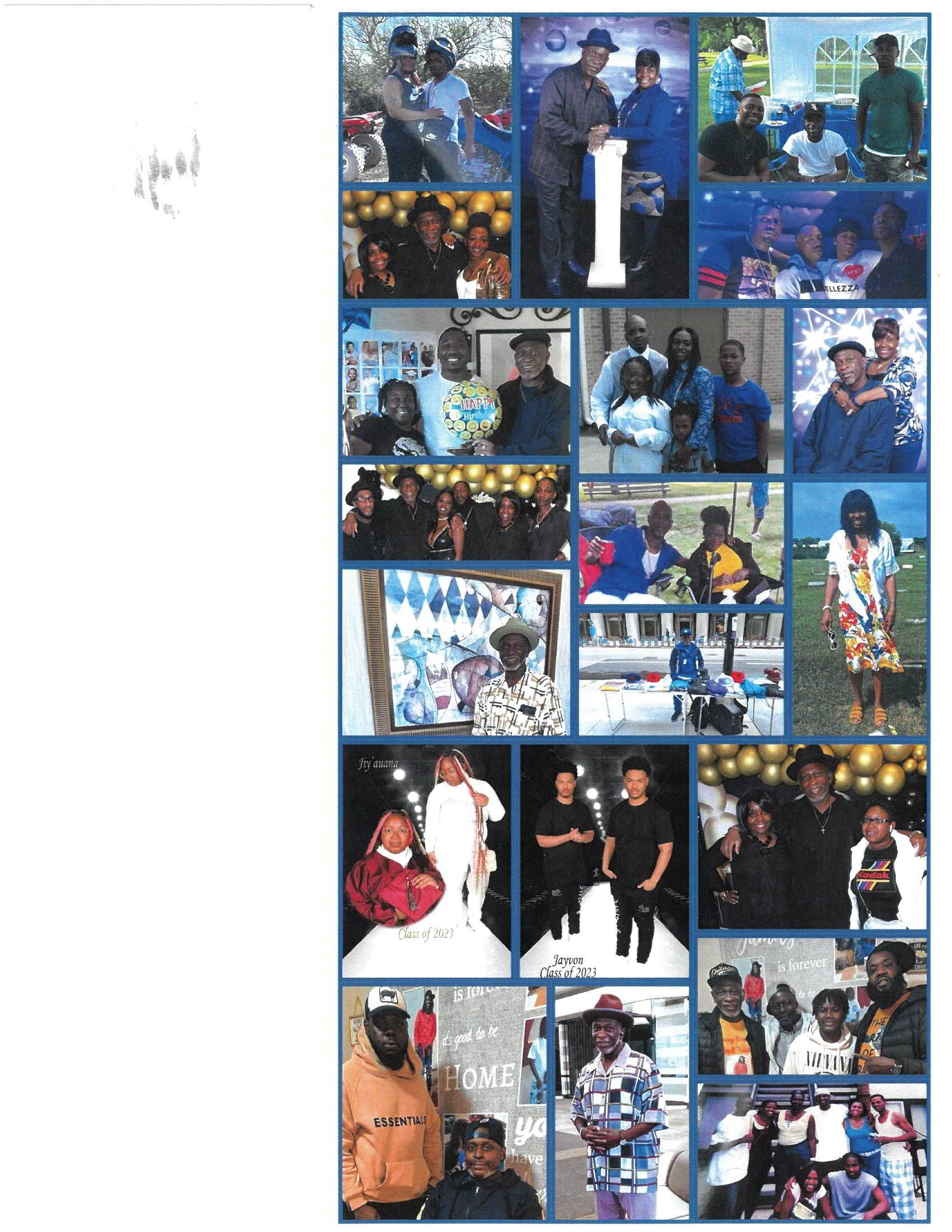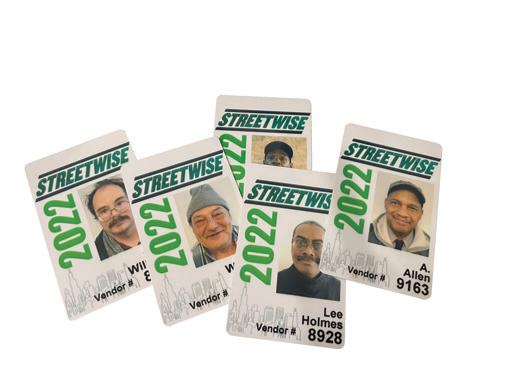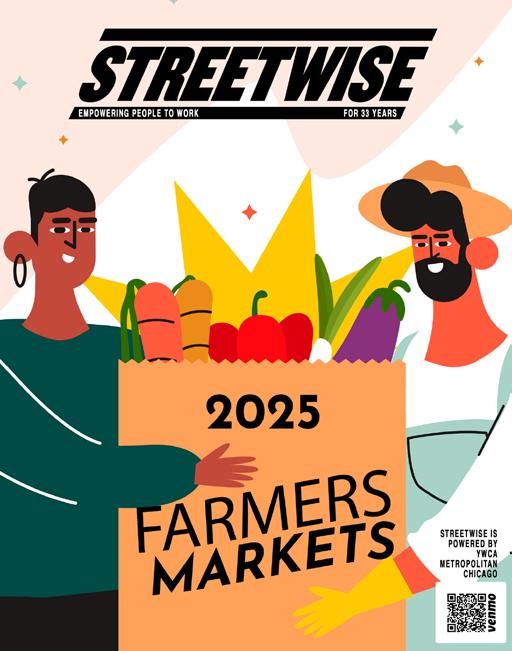Celebrate Legacy!
‘Unbound: Shattered Frames, Endless Visions’ Through a powerful tapestry of movement, storytelling, and innovation, “Unbound: Shattered Frames, Endless Visions” celebrates the depth and breadth of Black dance in Chicago. A groundbreaking premiere, the Chicago Black Dance Legacy Project’s performance spotlights 10 of Chicago’s most compelling dance companies across diverse artistic genres — including contemporary, jazz, tap, and much more. This transformative experience compels each cohort company to amplify its artistic voice, break new creative ground, and reimagine aesthetics in a manner that stays true to its mission, vision, and values. Saturday, August 23, 6 p.m., at the Harris Theater for Music and Dance, 205 E. Randolph St. Tickets are $40 at harristheaterchicago.org
A Play in the Park!
‘Guardians of the Earth and Sky’
Come on an adventure with the Four Celestial Guardians: the White Tiger of the West, the Black Tortoise of the North, the Azure Dragon of the East, and the Vermilion Bird of the South! Explore seasons, elements, colors, and constellations through storytelling, music, and dance in this interactive performance by Irene Hsiao in collaboration with dancers Amanda Maraist and Darling “Shear” Squire, musicians Paige Brown and Hunter Diamond, tai chi practitioner Hau Kum Kniep, and storyteller Penny Li, that will take place in Ping Tom Park, 1700 S. Wentworth Ave., at 2 p.m. on August 23. Art supplies will be provided to create headpieces to wear in this all-ages event. Dress for the weather and wear comfortable shoes for walking approximately one mile. FREE.
Classical in the Street!
Thirsty Ears Festival
The Thirsty Ears Festival, now in its 10th year, is Chicago’s only classical music street festival. It features 18 stellar ensembles and soloists performing classical music from all eras. There is also craft beer from local brewer Dovetail, organic wine, food trucks, community vendors and kid-friendly performances and activities. On Wilson Ave. between Ravenswood and Hermitage, 2-11 p.m. Saturday, August 23 and 1-9 p.m. Sunday, August 24. $10 admission.
A Piece of History!
'Angels In America'
Invictus Theatre Company at Windy City Playhouse, 3014 W. Irving Park Road, offers “Angels in America.”
Part I: “The Millennium Approaches” focuses on New Yorkers grappling with life and death, love and sex, heaven and hell, in the midst of the AIDS crisis and the conservative Reagan administration, through September 6. Part II of Tony Kushner’s Pulitzer Prize-winning, politically-charged look at 1980s America runs through September 7. Tickets are available at 773.609.1177 and https://www.invictustheatreco.com/2025-season-events/2025/6/13/angels-in-america
Decades of Laughs!
‘The Best of Second City: 65 Years of Funny’
The Second City is throwing the ultimate comedy party to celebrate 65 years of legendary laughs! “The Best of The Second City: 65 Years of Funny” brings together hilarious songs, unforgettable characters, and iconic sketches written by comedy greats like Tina Fey, Bill Murray, Catherine O’Hara, Keegan-Michael Key, Stephen Colbert, and so many more, updated for the modern era. Through August 30 at 1616 N. Wells St. Tickets are available at 312.337.3992 or www.secondcity.com
Life to the Fullest!
‘A New Brain’
Gordon is diagnosed with a life-threatening brain condition in “A New Brain.” A series of dreams and flashbacks help him come to terms with his career and remind him of all the songs he has yet to write. The show runs August 22-September 14 at Pride Arts Center on Halsted’s HooverLeppen Theatre, 3656 N. Halsted St. Tickets are $35 at pridearts.org
Taking it to the Streets!
16th Annual Living Newspaper Festival
Jackalope Theatre Company presents the 16th Annual Living Newspaper Festival, August 21 - 25, at the Broadway Armory Park, 5917 N. Broadway. The Living Newspaper Festival is inspired by the 1930s Living Newspapers of the Federal Theatre Project that created stories based on recent news headlines. The opening night performance is in partnership with the Goodman Theatre as part of the Goodman’s 100 Free Acts of Theater. This year’s Festival includes five one-act plays inspired by recent news headlines. Tickets for August 22 - 25 are $15 - $30 and are available at JackalopeTheatre.org or by calling 773.340.2543.
Happy is What You Make It!
‘How to Transcend a Happy Marriage’
George is meandering through the American dream - she has a house in the suburbs, a loving husband and a young daughter. W hat more could she want? Isn’t she on the road to a happy ending? In “How to Transcend a Happy Marriage,” Sarah Ruhl (Chicago native and author of "Eurydice" and "In The Next Room, or the Vibrator Play") challenges the white-picket-fence ideal, blurs the line between friends and lovers and asks all of us to grow beyond the constraints of monogamy. Playing through September 21 at Redtwist Theatre, 1044 W. Bryn Mawr Ave., Thursdays - Saturdays at 7:30 p.m. and Sundays at 3:30 p.m. Single tickets are $30 at RedtwistTheatre.org, with discounts available for seniors, students and industry professionals and pay-what-you-can for all Friday performances.
Hobo News, the 1st streetpaper, began in Chicago
On April 12, 1923, 200 Chicagoans attended a public debate, chaired by the medical-doctor-to-the-underdog Ben Reitman MD, between three university students and another trio who identified themselves as “hobos.” The question was whether Kansas ought to establish a court to mediate industrial disputes, with the university students arguing in favor and the hobos against. Reitman himself was a doctor to hobos and sex workers who also campaigned to make birth control more available; he also combatted venereal disease and performed abortions (illegal at the time); he was the lover of the anarchist/ revolutionary Emma Goldman for nine years and worked to advance her ideas on free speech.
The hobo subculture of the early 1900s included men and women who traveled the countryside, hopping trains and working odd jobs along the way.
We know of the 1923 debate thanks to an account by one of its three judges, Nels Anderson, a hobo who had gone on to get a master’s degree from the University of Chicago and to become a sociologist. According to Anderson, the students were longwinded and “presented their arguments in the usual conventional manner,” which left them “unable to get the ear of the audience.” Their main argument was that US institutions could be trusted to adjudge industrial disputes fairly.
The hobos, by contrast, spoke of their realworld experience of being in front of American judges. They spoke of going to prison for violating so-called “Tramp laws,” which criminalized poverty by making it an offense to cross State lines “without visible means of support.” For these men, judges were a class enemy who could not be trusted.
Continues on page 8...
Anderson describes the three hobo speakers as being logical, well prepared and “caustic,” especially John Laughman, who “was humorous and terrible by turns.” Laughman in particular was used to public speaking, being a regular participant in open-air debates held at “Bughouse Square,” just in front of the Newberry Library, similar to the Speakers' Corner in London's Hyde Park. The hobos won the debate, winning over two of the three judges, presumably (though he does not say so explicitly) including Anderson.
This debate took place in Chicago’s “Hobo College,” which was one of many institutions run by the International Brotherhood Welfare Association (IBWA), an organization founded by the “Millionaire Hobo” James Eads How. These colleges provided accommodation and free education for transient workers, or, as the IBWA called them, “hobos.”
Though it predated the IBWA, Eads How’s organization aggressively campaigned to privilege the term “hobo” over alternatives, such as “tramp” or “bum.” They adopted Dr. Reitman’s distinction that “[t]he hobo works and wanders, the tramp dreams and wanders and the bum drinks and wanders.”
One reason for making such a distinction was to avoid the legal consequences of being called a “tramp.” Another reason was because, in a context in which US transients were demonized as, at best, lazy and feckless, and, at worst, dangerous to women and society more generally, the IBWA sought to reframe its members as hard-working Americans. It was hobos, the IBWA proudly asserted, who built up the American West following the closure of the frontier around 1900, working in lumber camps, mines, mills, railroads, harvest fields and other places.
Key to this campaign was the “Hobo” News, which the IBWA launched several times but the most sustained publication run of which was between 1915 and 1924. The “Hobo” News is the world’s earliest known street newspaper. Like many subsequent papers, it provided subsistence by allowing vendors to keep a portion (in this case, half) of the proceeds.
The hobo vendors did not just sell the paper: they also wrote for it. Around 80 different transient contributors wrote for the paper, providing news articles, short stories, poems, comic “society news” pieces, and even a parody version of an agony aunt. This allowed the “Hobo” News to brag that it was “OF THE HOBOES, BY THE HOBOES AND FOR THE HOBOES.”
MICHAEL MOORE
That it comes out every Wednesday. And you can sell the magazine if you have a background, a record. Also, you can have access to the computer here, the telephone, you can eat a meal. It’s hard starting out as a salesperson because you are going to get “no’s” most of the time. It took years to get comfortable with people saying “no” knowing that I can expect some people to say “yes” and buy the magazine. It takes time for you to grow your character and your clientele, and your confidence in yourself. I kept at it. I liked talking to people, being in the open, and selling my product. I was selling, helping my brother, before I came to StreetWise: oils, incense and soaps – we would go down to Maxwell Street with a table on the weekend. You could go downtown and get your license to sell caps, umbrellas and scarves, at the State of Illinois building, the glass building. I saw the young man selling StreetWise, which at the time was on Michigan. He told me where I could go. I have been with the organization ever since. It has helped me. I look at it still as a stepping stone, a growing process. I was part of the Neighbor Carts program [where StreetWise vendors sold fruit and healthy snacks in the neighborhoods]. We got [nominating petition] signatures for Congressman Danny Davis. I am still trying to become a better salesperson. It’s all about communication.
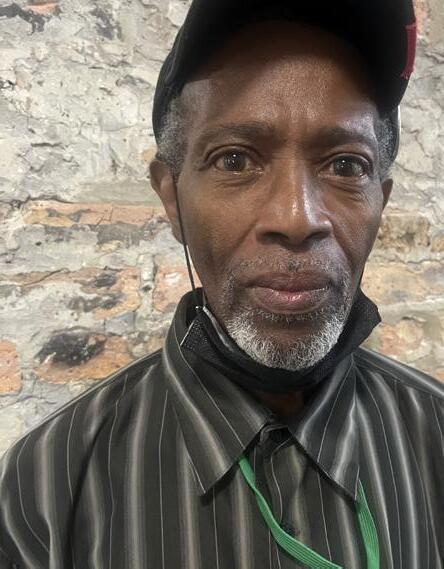

JOHN HAGAN JR.
That we’re entrepreneurs and buy the product. The magazines are not given to us. When you are consistent, you build your own business and a family you can talk with. Most of the conversation is about sports and weather, that’s the meat and potatoes of it. Not so much politics.
SUZANNE HANNEY, Editor in Chief
StreetWise is a social service organization that accepts people where they are. In order to distinguish them from panhandlers, we intentionally produce a quality journalism publication for them to sell that hosts a continuing discussion on how marginalized people can live equitably in Chicago. We have won numerous state and national awards for over three decades as part of Chicago's media ecosystem.
JOHN TAYLOR
That it’s a good paper and everything up inside of the paper is extremely informative. We’re out there because this is a resource for people and it’s a blessing and a blessing to me especially. I sell at Ohio and State and have been a vendor for 14 years.
I have to tell myself I want to be a better me and if I can be a better me I can be better for my customers. They have asked me when I am going to start being more consistent – every day – [because] “we really like you.” I want decent people to see I can make contributions.
Every so often people challenge your character, your consistency. This is what people are looking for. That’s why many vendors fall by the wayside.
Being a successful vendor has eluded me because I allowed things to get to my head. I would come here [to the office] and talk to Julie [Youngquist, executive director of StreetWise] or John [Hagan] or A. Allen [the two vendor service managers]. This is my second family and this StreetWise family has never quit on us; through my worst times it has been there for me. This is the best family. Every time I needed help, they helped me.
I want to master this business, then I can master another business -- baby steps. It’s like the Dan Ryan Expressway: you have to allow people to be who they are, you can’t expect they are going to change for you.
TREY TOWNSEND
We’re not panhandlers. It’s a legal way to make money and it’s legit. It gives me a purpose every day. I can’t wait to go to work. It gives me a goal and I set it and I do it. My goal is to make my rent. We are out here just trying to strive, to make things happen for ourselves. You get to build relationships with people. I know people in the neighborhood on different terms: the mailman, the lady buying dog food. I am in Ravenswood/Southport area. You get to know the community, it makes you feel a part [of it]. StreetWise changed my life. I had no income. I found a studio. If I’m having good days, people will say, “I don’t have any money.” I’ll say, “Here” and give them a paper. They’ll come back and say, “Oh, you gave my son a paper.” If I’m blessed, I’ll bless other people. That’s how it should be, pay it forward.
GERALD FARMER
That it’s a nonprofit organization. And it is a job. We have Paypal. For some people who don’t punch a timeclock, it’s easy money, you find a location where the store will let you be in front. I speak to the people, tell them to have a nice day. Eventually, if I see the same people and they don’t speak, I just let them go.
It’s a job because it provides income for me. The hardest part of the job is just being in the weather – the rain and the snow. You got to dress down according to conditions. As people get to know you and you get the spot broken in, more people will get the paper from you. It’s really good the day before holidays, sometimes the holiday itself: Christmas, Thanksgiving, even Memorial Day.
I am in Glencoe, a little bit of Winnetka and a location in Wilmette. For those of us who don’t have a job but want to make extra income, in essence that’s good for the world. There’s other cities that have papers similar to StreetWise. If you have a job, and want to make some extra money, you can do this on the weekend and set your own hours.
SCOTT BARRETT
It is an avenue for helping people help themselves by actively meeting on a social basis people with their product, which is the wonderful StreetWise magazine, to help them raise funds for whatever needs they have and also make a social connection with people, let them know we are connected, that everyone needs help from others, we need each other. I hope it is always here for this great need we have in Chicago.
Jesus Christ said go out and sell what you have. So we have one of the best avenues of selling what we have and helping the poor help themselves. The Great Creator wanted us to sell and Paul was a tentmaker, so keeping it simple but also tangible. A magazine is information, a great avenue of bringing together minds. We have something tangible to keep in your hands, something you can continue to look at, you’ll catch something that will better your life. The different avenues in the marketplace, it keeps us interconnected. It may change your life.
REN
When I am out there selling and I want to get people’s attention, first I will say, “Don’t read the New York Times, mouthpiece of late-stage capitalism in the USA. Read StreetWise, we cover Chicago. We cover things that are not in the mainstream press.”
JULIE YOUNGQUIST, Executive Director
People often think StreetWise is just about a magazine — but it’s really about people. Our vendors aren’t just selling magazines; they’re building connections, fostering relationships, and showing what’s possible when people are given the chance to work with dignity. That’s what StreetWise has stood for over the past 33 years.
CLOCEAL HOLMAN
StreetWise is an organization that helps people, empowers people, enriches people in a lot of ways. It helps them to gain respect and responsibility. You get respect for yourself when you are earning your own money, in control of your own hours, when you can do things by yourself. StreetWise is a very big help to me. I don’t get that large of an income. I do get a little retirement check. It’s not enough to pay my bills. This is like a subsidy. It helps me to pay bills, get extra money for clothing and other things. It’s a very big help to me.
DANNY DAVIS
I have been working for StreetWise going on 31 years. You run into a customer who will say ‘Get a job.’ This is a job; dealing with the public is a job. It’s not easy. Everyone is not going to be happy, on the same accord. This is a job. It’s not exactly a better job. It’s what you make of the job. When things go up and down as far as the pandemic, we didn’t know if the doors would close, but we’re still open.
I had two jobs. I used to sell doors and fences and windows because I ran into the owner of the company [while] selling StreetWise. I was one of the top sellers in that company and still selling StreetWise. They went out of business and StreetWise is still here.
PATRICK ALSTON
StreetWise is like a job for the homeless because it helps you with communication skills. At first, I was kind of a shy person, but by learning to be a salesman it helps me to think out of the box instead of thinking small-minded. Yes, I could get another job. I had salesmanship in high school, so it helps me a whole lot by selling the magazines. It’s going to help you advance in life, once I get my own apartment as far as communicating with the landlord and other people around me, strangers.
I am in my sister’s basement right now. It’s keeping me off the street and letting me know my sister still cares for me, because she’s allowing me to stay in her basement. I could be in a shelter, but she’s opened her heart to me because she’s seen what I have become since I’ve been selling StreetWise. It keeps money in my pocket so that she won’t have the fear of me looking around the house and trying to take something.
"Hobo News" continued from page 8
This pioneering model was hugely successful, with the paper selling 20,000 copies per month at its height. There were even international vendors selling the paper in Japan, Sweden, Scotland, Ireland, and England, and an (unsuccessful) attempt to establish a London version of the Hobo College.
The material on the pages varied over time, and there were battles as to what kind of paper the “Hobo” News ought to be. Some favored accounts of lived experience, while others sought to make the paper into a proSoviet propaganda organ.
Though clearly written with a male audience in mind, its representation of women improved over time, not least when Eads How appointed a female editor, Laura Clarke. Unfortunately, the paper lacks any representation from transients of color, and some articles display the dated racist humor of their day, though its pages also contain debates about how strong an anti-racist stance the IBWA ought to take.
The paper advocated many progressive policies, including a living wage and a universal eight-hour workday. Most importantly, though, it provided a platform for a widely despised group of unhoused people to demonstrate their writing talent, humor, and intellectual ability. As the famous author Jack London put it, “Hurrah for the hobo newspaper! I wish there’d been something like that afloat when I was knocking around on the road.”
But calling the “Hobo” News the first street paper may not be entirely accurate. Most papers of this kind from earlier periods have not survived, so it is difficult to know what we are missing. We do not even know when the “Hobo” News stopped publishing. The copies of the “Hobo” News that we do have survived by chance, being kept on open shelves in the St. Louis Public Library for decades without the library being aware of what they had. Eads How was the grandson of famed St. Louis engineer and builder James Buchanan Eads, and St. Louis Public Library is believed to hold the most comprehensive collection of original copies.
Other treasures might come to light in the future, changing how we view the history of street papers yet again.
Want to know more? “Hobo” News appears as Chapter 10 of “Representing Homelessness,” https://academic.oup.com/british-academy-scholarship-online/ book/42529?login=false
Owen Clayton PhD is a senior lecturer at the University of Lincoln, Lincoln, UK. His monograph, “Vagabonds, Tramps, and Hobos: Transiency in American Literature and Culture, 1890-1940,” was published by Cambridge University Press in September 2023. It won the 2024 British Association for American Studies (BAAS) Book Prize.
RUSSELL ADAMS
People need to know StreetWise is a job. When I was laid off from my job, I knew where to turn to. Back in 2003 I started working on the spot, made money to pay my rent so I wasn’t homeless. It’s easy to me, all I have to do is get up in the morning, go to my location and sell my magazines. No stress, no bosses hanging over my head, no punching in. I got two locations, one is in front of a Walgreens that’s gone. You still got foot traffic: people going to work, going home, tourists. The other location is a vacant CVS. There’s still money there: people catching the train, going to work. There’s money to be made and I’m doing it. Without StreetWise, I wouldn’t be where I am today. This is my job, and I take it very seriously. I thank all my customers and other StreetWise vendors.
I strive for eight hours, just like a job, between the two spots: morning rush hour, 7 o’clock ’til about 12, then I take a nice break, go back out there 3 ’til 6 o’clock. I used to work 6 in the morning ’til 6 at night, get home at 8 o’clock at night. It tore my body down and my girlfriend complained I was gone too many hours.
BESSIE SALTER
It has the latest events that are happening in Chicago. It helps people with housing, instructions on how to get your resume, a lot of beneficial activities happen at StreetWise.
LEE A. HOLMES
It’s not just a nonprofit organization that helps those who are homeless. It’s a nonprofit that helps hone one’s entrepreneurial skills and sees if you are fit to be an entrepreneur. It’s an organization that aids those that want to aid themselves, from homelessness to mental issues to incarceration. It’s an organization that’s about uplifting the people, by the people and for the people.
DAVE HAMILTON,
Creative Director/ Publisher
I think people need to know that StreetWise actually works! Our programs are the tools, and the vendors are the real success stories. Selling StreetWise helps with income and communication tools to move out of crisis, which leads to selfconfidence, and that is where the real change happens. Once our vendors realize their self-worth, the sky is the limit for what they can accomplish!
SYLVIA SPIVEY
It’s a great opportunity for people to learn how to communicate with people, meet people. It’s not a hand me down, it helps you to develop communication [skills] with people, your personality, learn how to deal with people.
Remembering Vendor ANTHONY WESTON
by Suzanne Hanney
Standing at his spot on Jackson and Clark Streets, Anthony Weston used to entertain his StreetWise custom ers from the Union League Club and neighboring federal buildings by flip ping magazines in the air and catch ing them on the way back down. Anthony’s daughter Talisha used to joke that he was so good at selling that, “My Daddy could sell water to a whale.”
Selling StreetWise is how Anthony, nicknamed “The Flipper,” met his wife, too. Linda Williams Weston was working on the U.S. census in 2000 at the 111 W. Jackson Building.
The couple didn’t start dating, how ever, until she met him again in 2007. Linda was on the CTA Green Line go ing up North to take care of a lady with Parkinson’s. She invited him to her church; he showed up and a few weeks later, got baptized again.
Anthony, aka “Ant” or “Sawt” to his friends, had been saved and bap tized years earlier. A member of the Apostolic Church of GOD, he used to wake at 4 a.m. to pray. He loved Psalm 91 (“The Lord is my refuge and my fortress.”) He also enjoyed barbe quing for his family, going to the lake front, attending concerts and plays, going out to dinner and partying with his friends, who always said he was “a good man.”
Anthony and Linda were married in 2011 and lived on the far South Side as empty nesters. He called her three children his stepchildren and he had three sons and a daughter of his own, all grown.
Mr. Weston died unexpectedly of natural causes July 17 at age 68. What she wants people to know about him, Mrs. Weston said, was “that he was a really nice guy, he cared about people and believed in God. He wanted people to be saved and have eternal life. He always was determined to do things he set out to do.”
“He was an enterprising young man,” StreetWise cashier to the vendors Ron Madere said of Anthony. “Very easy to get along with. He had a company on the side where he sold merchandise. He worked the Bud Billiken Parade. He was a good vendor and would help anybody. Most recently he worked for the University of Chicago doing security, driving around the campus.”
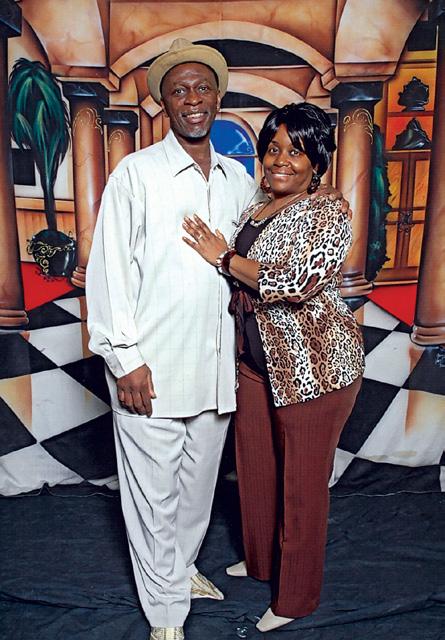
“God gave me 54 years with my uncle. He was very supportive and protective. Making sure I am not in harm’s way,” said his niece, Lolita Weston, whose mother died when she was 7 months old and whom Anthony’s mother, (her mother’s sister) raised as a result. “He protected me and on birthdays and holidays he was always there. ‘Did I need anything?’ He always had an ear for me. Just to hear him say ‘Tuesday I love you’ -- my nickname -- on the phone as he was hanging up. I heard in his voice he really loved me. When he introduced me, he would say, ‘this is my sister,' because his mother raised me. That’s how he wanted to be recognized.”
Anthony was born in Chicago Feb. 26, 1957 to Ruby Lee Weston and raised by her and his stepfather, Fred Jackson, the sixth of eight children. He loved to play football, basketball, baseball and to box with friends he grew up with at Robert Taylor Homes. He attended DuSable High School and had worked at Brach’s Candy in the past, Linda Williams Weston said. He came to StreetWise in 1993 at the suggestion of a friend whom he had known growing up at Robert Taylor.
Because of his exceptional entrepreneurial skills, Anthony had been one of the StreetWise vendors in the Neighbor Carts program in 2013, which sold fruit and healthy snacks at busy intersections -- in his case, at 55th Street under the CTA Green Line. He also had attended a trade school and received certificates in home remodeling and floor covering.
Although he worked the University of Chicago security job at 2 p.m., he regularly would be downtown at his spot, selling StreetWise for four or five hours, starting at 6 a.m.
“He loved it,” Mrs. Weston said. “That was his passion, because he was able to connect with people. He was a person who loved people, loved talking to people, the conversations. And the people down there loved him. He knew a lot of people at the Union League Club. They used to give him big Christmas gifts.”
In addition to his wife, sister/niece, children and stepchildren, survivors include his goddaughter, Jeanna; sisters Linda, Roberta and Vera; the mother of his children, Shirley; and 10 grandchildren.
“He did things from the heart and didn’t expect nothing in return,” Lolita Weston said. “When I treated him and his wife to a comedy show, he said, ‘You don’t have to.’”











